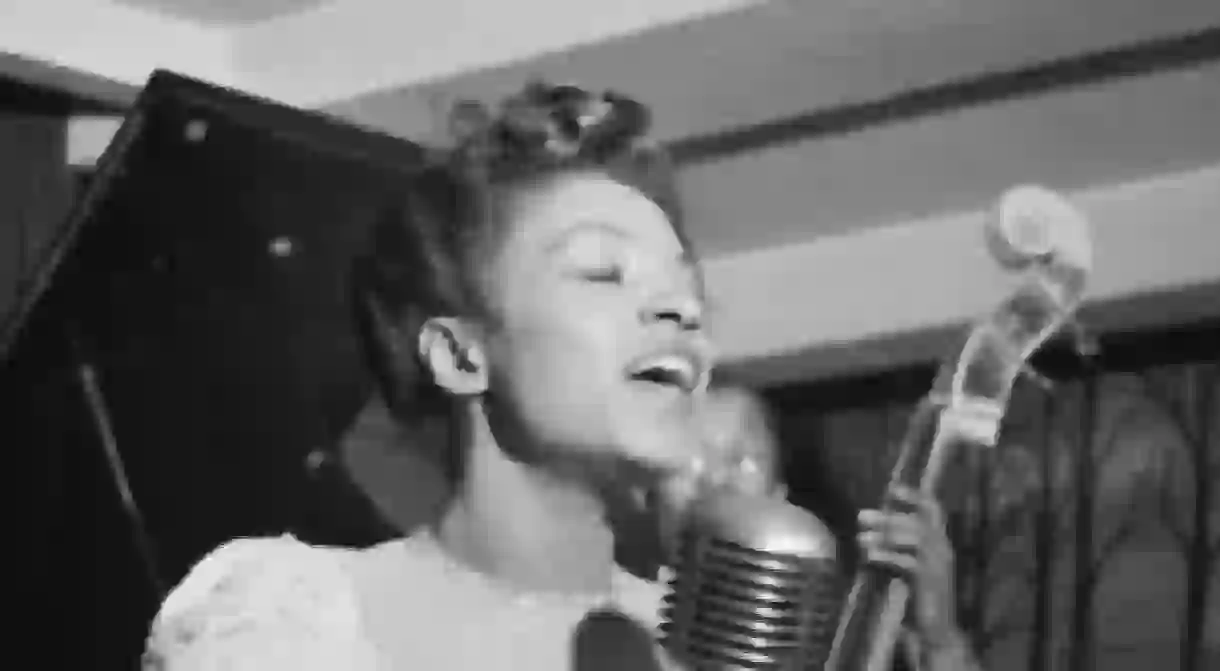Sarah Vaughan: The Sassy One

Many influential names in music have praised the work of American Jazz singer Sarah Vaughan for her wondrous voice. With a career that lasted almost fifty years, she was ranked as an elite female jazz singer, influencing many other artists from her time and inspiring many more to this day.

According to Ella Fitzgerald, Vaughan was one of the ‘the greatest singing talents’, and jazz critic Leonard Feather considered her to be the ‘most important singers to emerge from the bop era’. Born on 27 March 1924 in Newark, New Jersey, the Grammy Award winner and recipient of many other honorable awards, Sarah Lois Vaughan, (later nicknamed ‘Sassy’ for her speech), was thrust into stardom from a young age. Growing up in Newark, she sang in the church choir and learned the piano at the age of seven. Her love for music emerged from listening to popular songs on the radio and seeing bands in concert or tour. In 1942, at the age of 18, Vaughan entered and won an amateur contest at the Apollo Theatre and in 1943 she opened there for Ella Fitzgerald. Soon hired as a singer in the Earl Hines band, her career took off and she suddenly found herself part of a band deemed the ‘incubator of bebop’ singing with artists such as Dizzy Gillespie, Charlie Parker and Bennie Green. After being part of a band with Billy Eckstine for a short period, she started her journey as a solo artist in 1944.
Vaughan’s solo career began with her singing in New York clubs, followed by a 1945 recording of ‘Lover Man’, with the record label Guild. After recording ‘Time and Again’ with Stuff Smith she signed with the label Musicraft until 1948 when the label went bankrupt because of the musician’s union ban; following this, Vaughan signed with Columbia from 1949 to 1953. Whilst at Columbia, her recordings (some of which reached success in the charts) were more commercial than some of her earlier or later work, however, her 1950’s involvement with the Jimmy Jones Band showed that she also possessed a great talent for singing jazz.

After Columbia, Vaughan signed with Mercury where she recorded both commercial and jazz-oriented records. Vaughan’s relationship with George Treadwell, her husband and manager, was fruitful in terms of her music, in 1958, however, she filed for divorce and concluded their business relationship. By 1959, however, she was married again to Clyde Atkins, who she then filed for divorce in 1963. In the beginning of the sixties she signed with Roulette Records, recording a succession of ensemble albums. The rest of the sixties saw live performances in Denmark with her trio Sassy Swings, a first appearance the White House and relocation to Benedict Canyon with Clyde Golden who became her lover and manager. Due to violence and his gambling problems, the relationship was short lived and was followed by one with Marshall Fisher.
The seventies were said to be a re-birth for Vaughan through new album and live performances; the successes of A Time in My Life, Feelin’ Good and Live in Japan being noteworthy productions of her recording activity by working with Mainstream Records, which was run by Bob Shad. However, by 1977 Vaughan signed with the label Pablo Records, where she then recorded an album of Beatles songs, and I Love Brazil and Consequences. By this time her relationship with Fisher was also terminated. In 1978 she married trumpeter Waymond Reed. This year also saw the television airing of her documentary, Listen To The Sun, made by the filmmaker Tom Guy; this was never commercially released.
Vaughan remained active in the eighties and recorded Send in the Clowns and Crazy Mixed Up. She also started to receive many of her awards during this time, as she was publicly recognised as an important jazz innovator. Many of her performances were also taped and Sarah Vaughan: The Divine One appeared on the American series, American Masters. It was only at the end of this decade that her recording schedule began to slow down. With her death in 1990, at the age of 66, Vaughan left behind a rich jazz legacy as her soulful songs continue to mesmerise listeners across generations.













